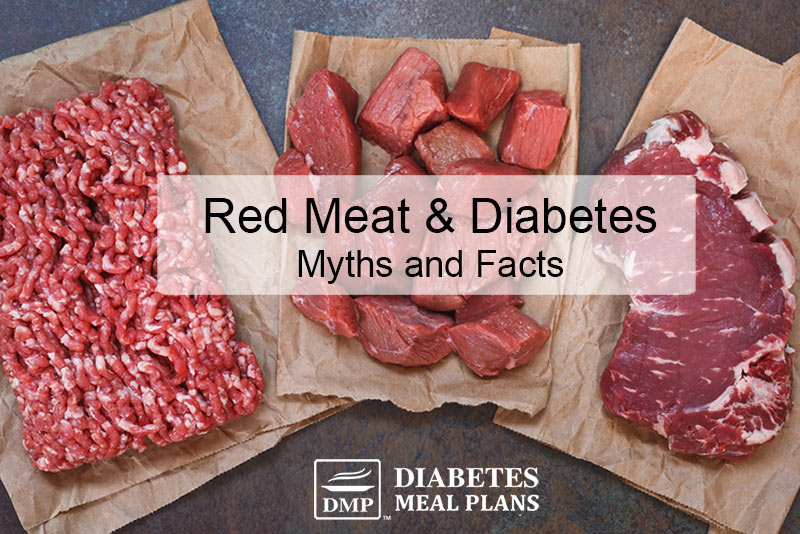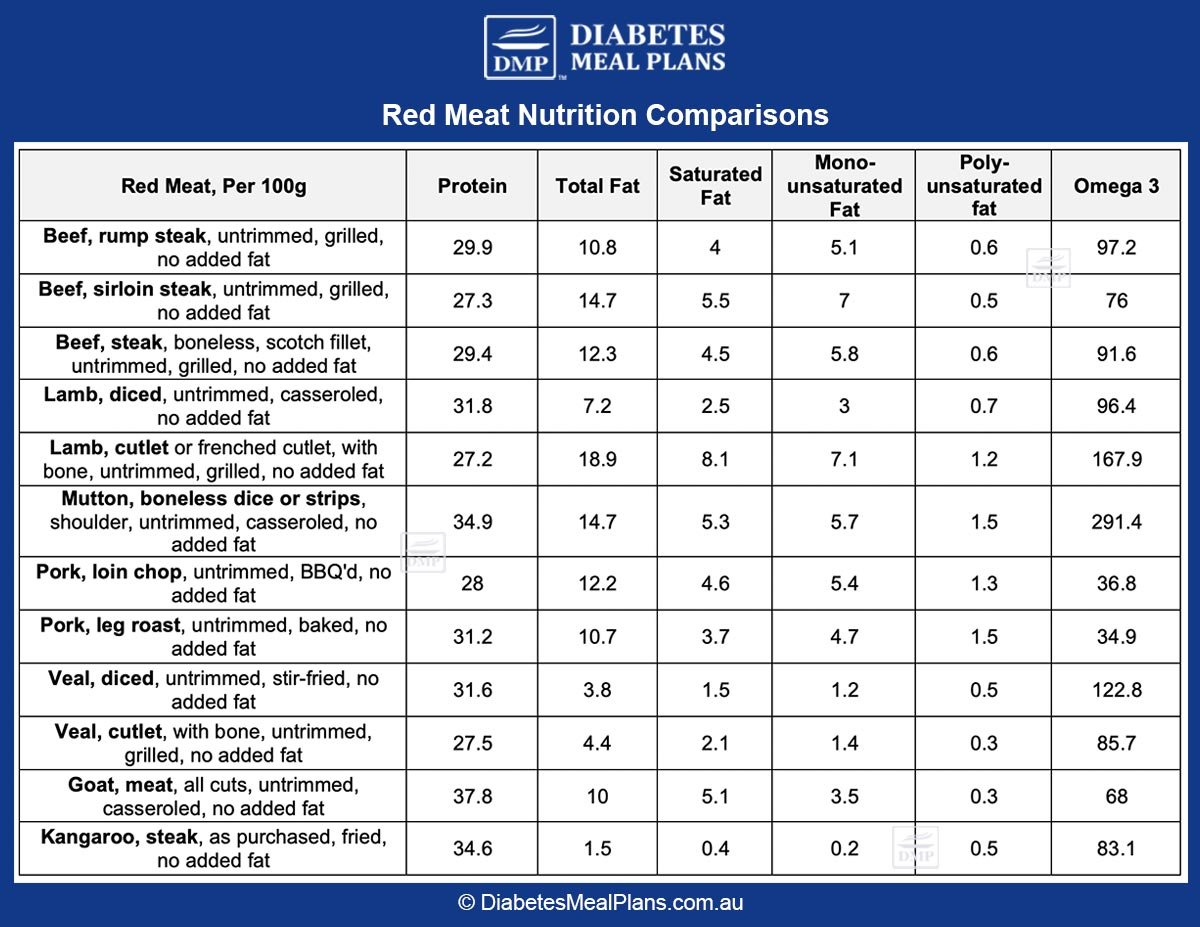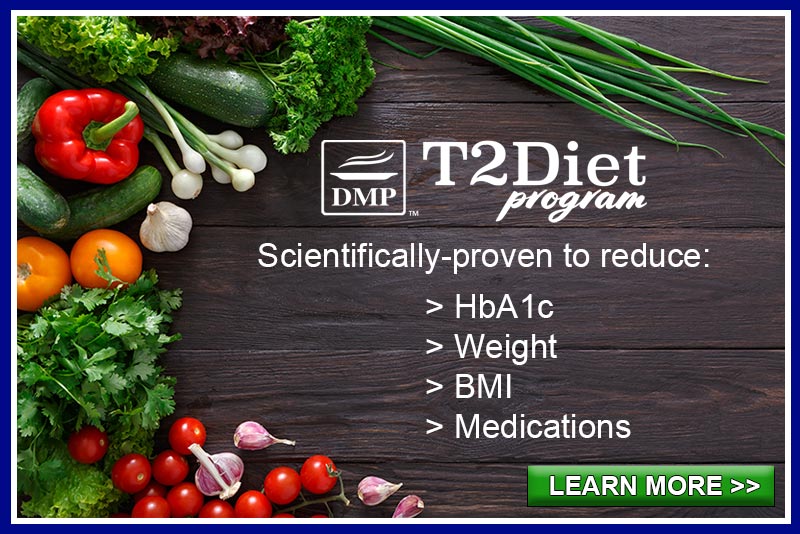Red meat such as beef, veal, pork, lamb, mutton, and goat often receive negative attention due to its high fat content, especially since most people think red meat is full of saturated fats.
However, it’s important to note that all foods containing fat have a mix of saturated, monounsaturated, and polyunsaturated fats.
Even olive oil, considered a heart-healthy fat, contains saturated fat; and interestingly, a 100g serving of beef may contain around 5-9g of saturated fat, while the same amount of olive oil contains approximately 14g of saturated fat.
There are numerous nutrition myths that people have come to accept as true, but the real truth is that red meat is a nutrient-dense food that can be part of a nutritious diabetic diet.
Let’s dive deeper into red meat and its relation to diabetes.

Red Meat is a Nutrient Dense Food
Contrary to popular belief, red meat is not inherently less healthy than other types of meat.
Red meat is a nutrient dense food source!
It is high in protein and fat and virtually carb-free. This combination of fat and protein promotes blood sugar stability and satiety (feeling of fullness).
Plus, dietary fat is crucial for hormone production, cell maintenance, and sustaining energy levels.
Red meats also offer micronutrients not readily available in other foods, such as iron, zinc, and vitamin B12.
MYTH: People often think red meat is loaded with saturated fat. While it does contain more saturated fat than some other foods, it may come as a surprise that red meat often contains more monounsaturated heart-healthy fat, than it does saturated fat.

Nutrition Facts; 100g beef steak, with visible fat eaten
250 cal/ 1046 kJ
0g carbs
26.7g protein
15.1g fat
- Monounsaturated fat 6.4g
- Saturated fat 6.0g
- Polyunsaturated fat 0.6g
Red Meat Nutrition Facts
The chart below shows the nutrition facts for a variety of red meats.

As you can see by the chart, most red meats (especially those most commonly eaten – beef and pork) contain more monounsaturated fat than they do saturated fat.
All the fats in red meats are healthy fats. Why would nature put saturated fat in natural whole foods if we were not meant to eat it?
It wouldn’t!
Red meat is a nutrient dense healthy food source.
Research on Red Meat, Saturated Fat, and Diabetes
For years, it was believed that consuming red meat and other saturated fat-rich foods would significantly increase the risk of chronic diseases like cardiovascular disease. Research, however, has challenged this notion.
A meta-analysis of over 300,000 subjects found no statistically significant link between saturated fat intake and stroke, coronary heart disease, or cardiovascular disease.
Likewise, another review found that saturated fats were not associated with cardiovascular disease, coronary heart disease, all-cause mortality, ischemic stroke, or type 2 diabetes.
Yet, another review found mixed results regarding the impact of saturated fats on metabolic and cardiovascular health. It suggested that replacing saturated fats with unsaturated fats could have a positive effect, but replacing them with carbohydrates (a common thing people do) did not offer any benefits.
Processed meats, but not unprocessed red meat, were linked to higher rates of diabetes and coronary heart disease. Processed meat intake was associated with a 42% increased risk for coronary heart disease, while no connection was found between red meat and heart disease.
Overall, research does not point to saturated fat as a direct cause of heart disease – again, this is a myth we need to overcome.
Trans fats, commonly found in partially hydrogenated oils, are the fats to avoid. They increase inflammation markers, reduce insulin sensitivity, and significantly raise the risk of cardiovascular disease and heart attacks.
Recommendation: Enjoy Red Meat in Moderation
It’s best to minimise processed meats and avoid trans fats.
In contrast, unprocessed red meat containing saturated fats are not the villains they’ve been portrayed as.
There is ample evidence that red meats do not negatively impact overall health, and they even provide nutritional benefits, such as vitamins, minerals, high-quality protein, and appetite-satisfying fats.
We recommend people include a wide variety of nutrient dense protein sources in their diabetes diet – poultry, fish and seafood, vegetarian proteins (tofu and small amounts of beans and legumes), and red meat as well.
By including variety in your diet, you also increase the variety of nutrients you consume, and that makes for an interesting and very healthy diet!

